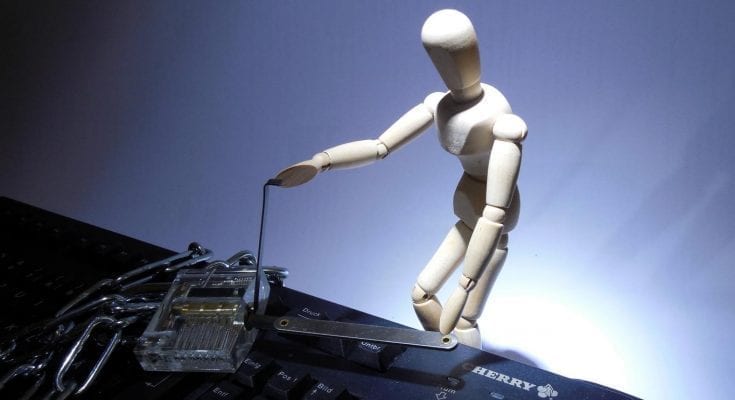By now, it is no longer a secret that companies collect a lot of data. If you have ever been online and seen a personalized ad, that is data that has been collected about you being utilized to show you something you might be interested in. Big data might seem like a foreign concept, but it is relatively easy; it refers to the way we collect and utilize the data, derive meaningful information from it, and use this information to make decisions. As machine learning and artificial intelligence become important tools of working with big data, it will get more important as time passes TBH. Below, we will look at some interesting facts about big data so you stay in the know.
The Amount of Data We Create Is Mind-Boggling
Humans create over 5 exabytes of data every two days. Considering that one standard-definition movie is about 1 gigabyte and an exabyte is 1,000,000,000 gigabytes, you can begin to understand the scale of the data we produce every day. That is as much data as was created between the time we started recording history and the year 2003. The more interesting thing is that we create this data and then give it away freely to corporations and businesses that either sell it or find ways to make money out of it.
Ecommerce Relies on Big Data
Ecommerce is perhaps one of the biggest beneficiaries of big data. Companies and businesses collect data about us, or people like us, and then use that information to sell different products and services to us. Your favorite ecommerce store likely knows more about you and your lifestyle than most people do. All this comes from your purchase behavior, searches for products online, the types of ads you click on online and other data they have collected about you.
Big data is so important to ecommerce that it is estimated to drive about $50 billion in annual sales. This number will keep increasing as big data analytics and algorithms get better at their job.
There Is a Shortage
As more businesses harness the power of big data, a shortage of employees able to work with the amount of data collected every day is emerging. Reports by different organizations put the number of people required to fill the gap at 200,000. This is in addition to over 1.5 million managers and data analysts who are required to make decisions based on the results of the analysis of all this data.
Fortunately, that means there is an opportunity for those with an MBA in Business Intelligence. An MBA in Business Intelligence equips you with the skills you need to gather and analyze data and to come up with actionable, data-driven, and strategic business decisions and changes. If you are interested in learning how an MBA in business intelligence will be useful in the coming years, click here to learn more from an analysis done by Suffolk University.
Even with the shortage mentioned above, big data is still creating jobs. It is estimated that big data will create 2 million jobs in the coming years, with each of these jobs creating an additional three jobs every year. That means big data will create 6 million jobs per year.
Data Can Turn a Business Around or Sink It
The data a business does or does not collect, and the way it uses this data, are important to its survival. Some of the biggest businesses in the world reportedly spent an average of over $7 million collecting data in 2016. When used as it should be, this data can increase the operating margin of a business by as much as 60%.
Businesses Are Big Data Collectors and Hoarders
It is estimated that Walmart, one of the biggest retail chains in the United States, collects over 2.5 petabytes of data every hour from all its transactions. AT&T, on the other hand, is thought to have the biggest data cache in one database. It is estimated that it stores phone records in a database that is 315 petabytes in size.
The amount of data and information collected by firms like Google, MySpace, Facebook, Twitter, Uber, Instagram, Youtube, and TikTok is simply mind blowing.
Big Data Is Fighting Crime
The Los Angeles Police Department has already used big data to predict where crime will happen. This is done through the use of predictive policing, a system that uses algorithms and data from the past to analyze patterns and find out where crimes will happen before they do.
This technology is also being used in other parts of the world as collecting, storing, and analyzing vast amounts of data becomes easier and cheaper. Doing this saves money, protects communities, and helps fight crimes before they happen.
Big Data Is Also Helping in Healthcare
Big data is being used to find out which categories of people are not receiving the best healthcare and is, therefore, helping doctors provide them with the healthcare they need. For example, big data has been used to analyze the disparities between the level and quality of healthcare offered to LGTBQ individuals and other individuals and it has found disparities between the two. Now, measures are being taken to correct this unfortunate situation.
By using big data, the healthcare industry can also identify inefficiencies in its operation which could save the industry over $300 billion a year.
Big Data Is Streamlining Supply Chains
Supply chain management is very complicated but big data is making it less so. Data is collected from various points of the supply chain and is used by businesses to find out where inefficiencies exist. For example, businesses can find out where traffic jams happen and when they do, and can then plan their supply routes around them.
Businesses are also able to predict trends in demand and supply. Manufacturers can therefore ramp up production when demand is high and slow things down when it is low. This eliminates expensive warehousing costs and saves manufacturers the cost of producing goods they are not sure they will be able to sell.
Conclusion
Data is one of the most valuable commodities these days and it is no surprise that businesses and different types of organizations are trying to find the best ways to make use of it. As the amount of data we produce continues to grow, expect to see new ways of collecting and analyzing this data as well as making use of it.
FAQ
How much data is Walmart collecting?
It is estimated that Walmart, one of the biggest retail chains in the United States, collects over 2.5 petabytes of data every hour from all its transactions. AT&T, on the other hand, is thought to have the biggest data cache in one database. It is estimated that it stores phone records in a database that is 315 petabytes in size.
What are healthcare companies doing with my data?
Big data is being used to find out which categories of people are not receiving the best healthcare and is, therefore, helping doctors provide them with the healthcare they need. For example, big data has been used to analyze the disparities between the level and quality of healthcare offered to LGTBQ individuals and other individuals and it has found disparities between the two. Now, measures are being taken to correct this unfortunate situation.
How does law enforcement use data?
The Los Angeles Police Department has already used big data to predict where crime will happen. This is done through the use of predictive policing, a system that uses algorithms and data from the past to analyze patterns and find out where crimes will happen before they do.
Additional Resources:



